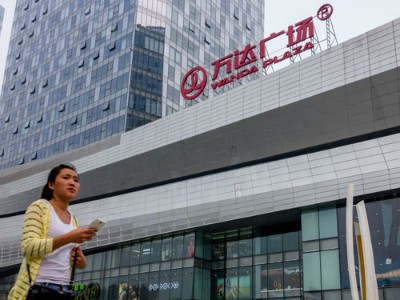
Wanda Commercial Properties primary asset are a fleet of 142 malls on the mainland
Banking giant UBS walked away from the biggest privatisation ever on the Hong Kong stock exchange due to concerns over the structure of Wang Jianlin’s $4.4 billion buy-back of shares in Dalian Wanda Commercial Properties, according to a report in the Financial Times.
Although UBS had originally proposed the buy-back of Wanda’s Hong Kong-listed shares amidst a series of Chinese companies migrating to higher valuations on mainland exchanges, the Swiss banking institution ultimately decided to pass on the deal and the potential fees associated with it. Wanda’s deal was also turned down by at least one other leading international bank, according to the account.
Mainland investment bank CICC eventually handled the transaction for Wanda, completing the deal last month after a series of negotiations with the company’s now former shareholders, as well as some eyebrow-raising offers to private investors subscribing to the privatisation scheme.
Wang Guaranteed Returns to Investors

Wang Jianlin was ready to ensure investors that the deal was all in the bag
Wanda had promised participants in the share buy-back that the company would pay returns of at least 12 percent if the company failed to gain a mainland listing within two years of de-listing from the Hong Kong exchange. At this point Wanda has said it is in the process of seeking a listing on the Shanghai exchange, but no approvals have been received from Chinese authorities to date.
Hong Kong’s banking regulations require institutions to be confident of the sources and availability of funds to be used in share proposals. The story cited an unidentified senior Wanda official as saying that UBS became uncomfortable with the deal’s credit-risk profile, commenting that “That’s why foreign banks are really losing ground on this front.”
Wanda’s $3.7 billion 2014 IPO was the biggest of that year and was jointly handled by CICC and HSBC with UBS and Goldman Sachs joining CICC as lead bookrunners.
Wanda Hopes to Enjoy a Mainland Bourse Premium
By migrating its listing from Hong Kong to Shanghai, Wanda hopes to take advantage of the valuation premium afforded to Chinese companies on their home exchanges, compared to what mainland firms have been experiencing in Hong Kong and elsewhere.
Even following last year’s stock market slide shares on mainland markets routinely trade for more than three times the price to earnings ratios common on the Hong Kong exchange, and nearly six times the valuation of companies that make up the Hang Seng China Enterprises Index, which tracks the values of some of the biggest mainland companies listed in Hong Kong.
However, such deals are inherently risky with no guarantee of companies that begin the process of delisting from a foreign exchange actually being able to secure a listing on the mainland, and no set timetable for implementing such transactions even if they do work as planned.
No Clear Time Table for Mainland Listing
While Wanda is a prominent company known for its connections to high-level officials in China, stock listings have frequently been delayed on the mainland due to political concerns and bureaucratic red tape.
Greenland Group, which is controlled by the Shanghai government, was able to achieve a backdoor-listing on the Shanghai exchange last year only after first moving to establish a Hong Kong listing in 2013. Even after the giant developer announced plans for the backdoor listing in March 2014, implementation of the listing was not completed until April of 2015.
In recent years Wang Jianlin has increasingly sought to raise Wanda’s profile as a Chinese national champion, publicly calling out Disney in a self-styled battle of the theme park giants, and vowing to use his growing movie empire to spread Chinese themes to global audiences.
Leave a Reply